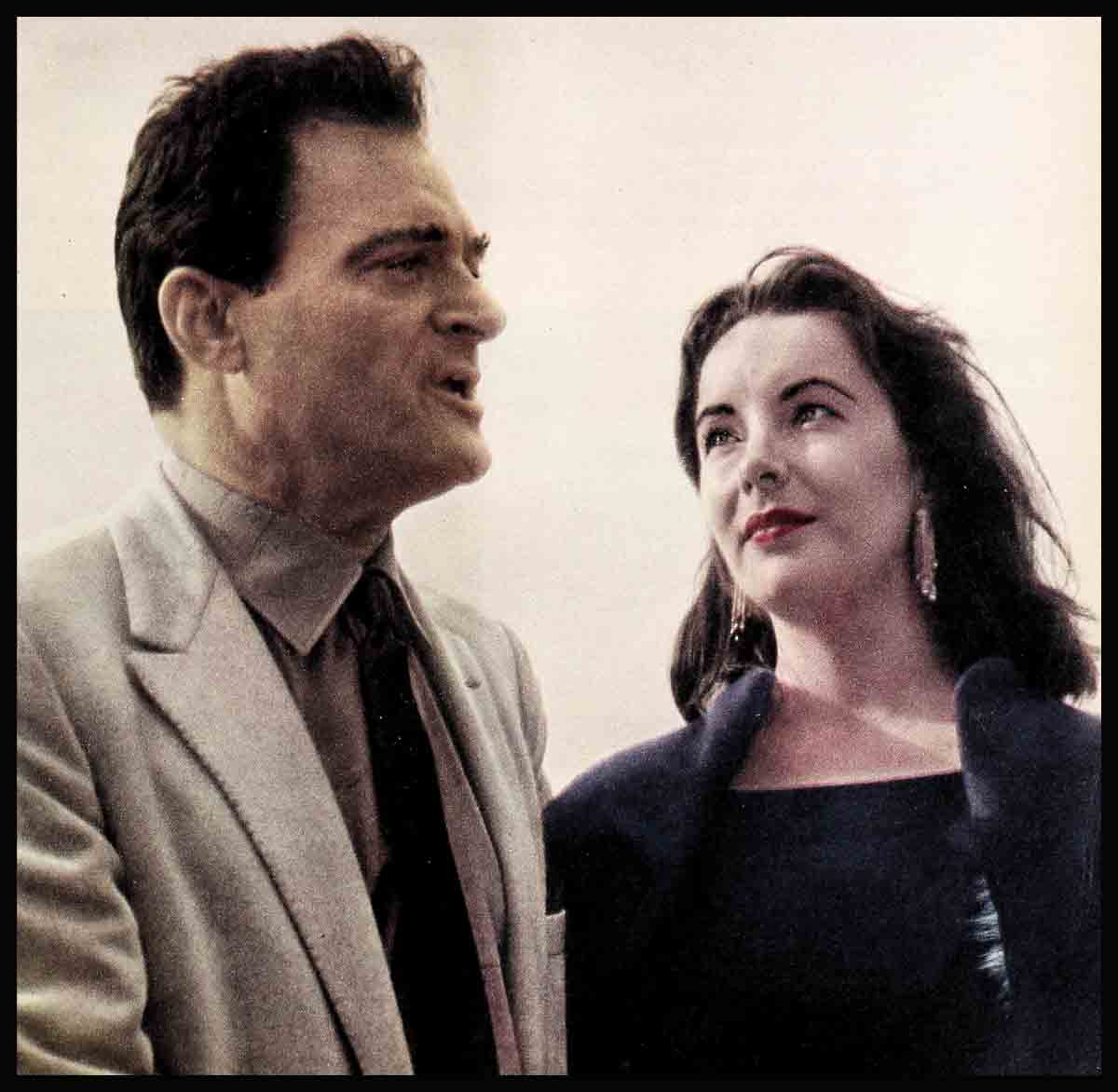
Goodbye, My Love—Elizabeth Taylor & Michael Todd
She sat in the bedroom, a small figure with hands lying listlessly in her lap, face white as chalk, eyes swollen with weeping, staring vacantly, seeing nothing.
Across the room, her close friend, Helen Rose, top costume designer of M-G-M studios, was busy packing clothing into a small overnight case.
Helen picked up a wisp of black and stood with it in her hand, trembling, turning quickly so that the still figure in the room could not see her stifled sobbing.
“I fixed her wedding veil, and her gown, when she was a bride of eighteen. Elizabeth Taylor, the Girl Who Has Everything, they called her,” Helen remembered. “. . . and when she walked down the aisle to marry Nicky Hilton, she was so lovely, so full of joy and trust in the goodness of life. How strange life is. You wonder: She has so much—yet so little. How? Why did this happen?”
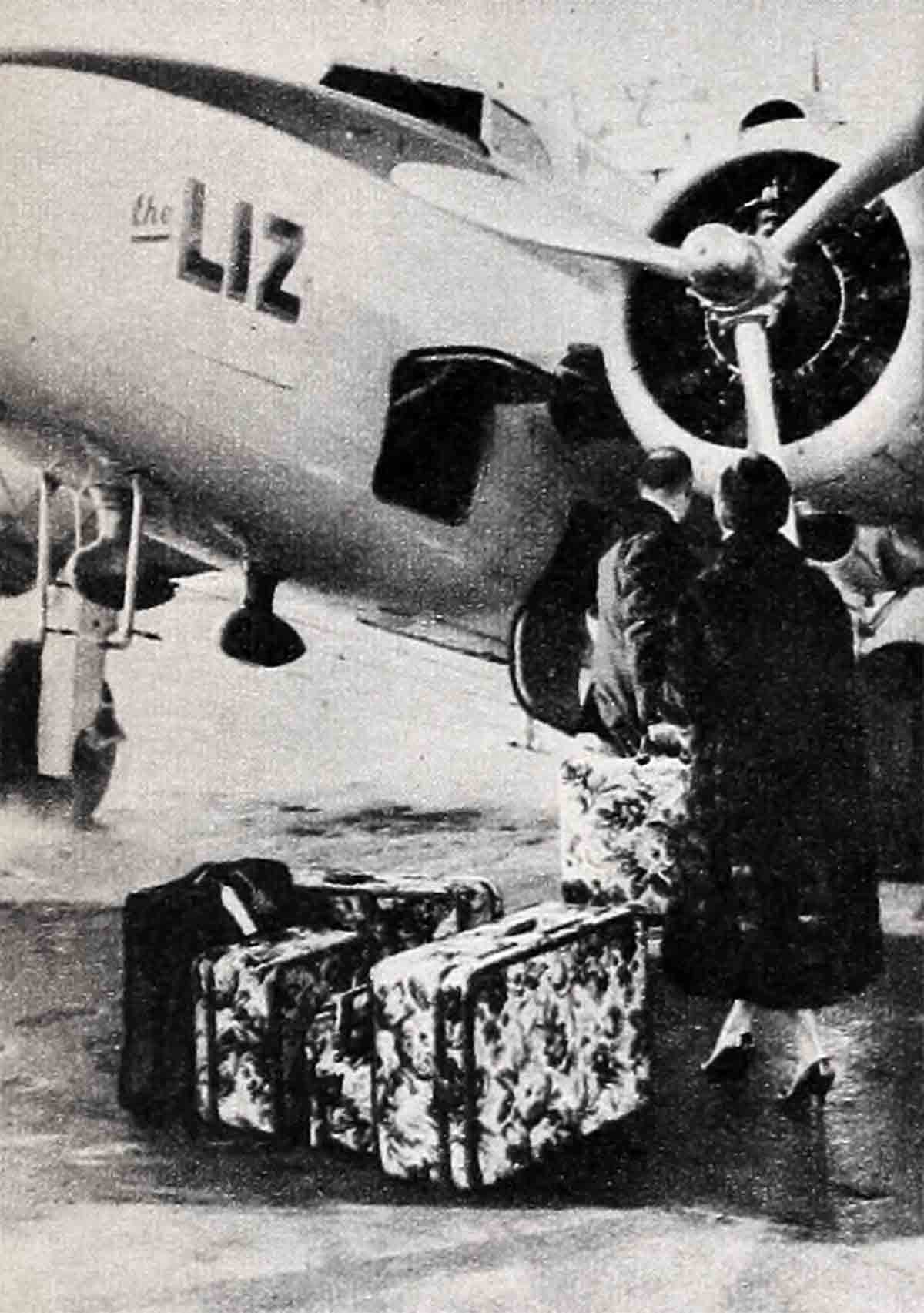
The figure in the easy chair stirred slightly, and a voice came, slowly, as if from a great distance. “Is it time for me to get dressed, Helen?”
Helen dabbed at her eyes quickly, turned and forced a smile. “No, dear. Just try to rest. Could you eat something? A cup of broth, perhaps?”
“No, thank you,” the voice said weakly. “I can’t. I just can’t.” Her head fell back against the pillows, and her eyes closed.
She tried, she tried so hard to understand. But it was all like some horrible, crazy nightmare . . .
She remembered lying alone in the big bed in the dark, with the rain a steady rat-tat-tat against the window pane, every drop sending the same word pounding through her head—“Mike! Mike! Mike!”
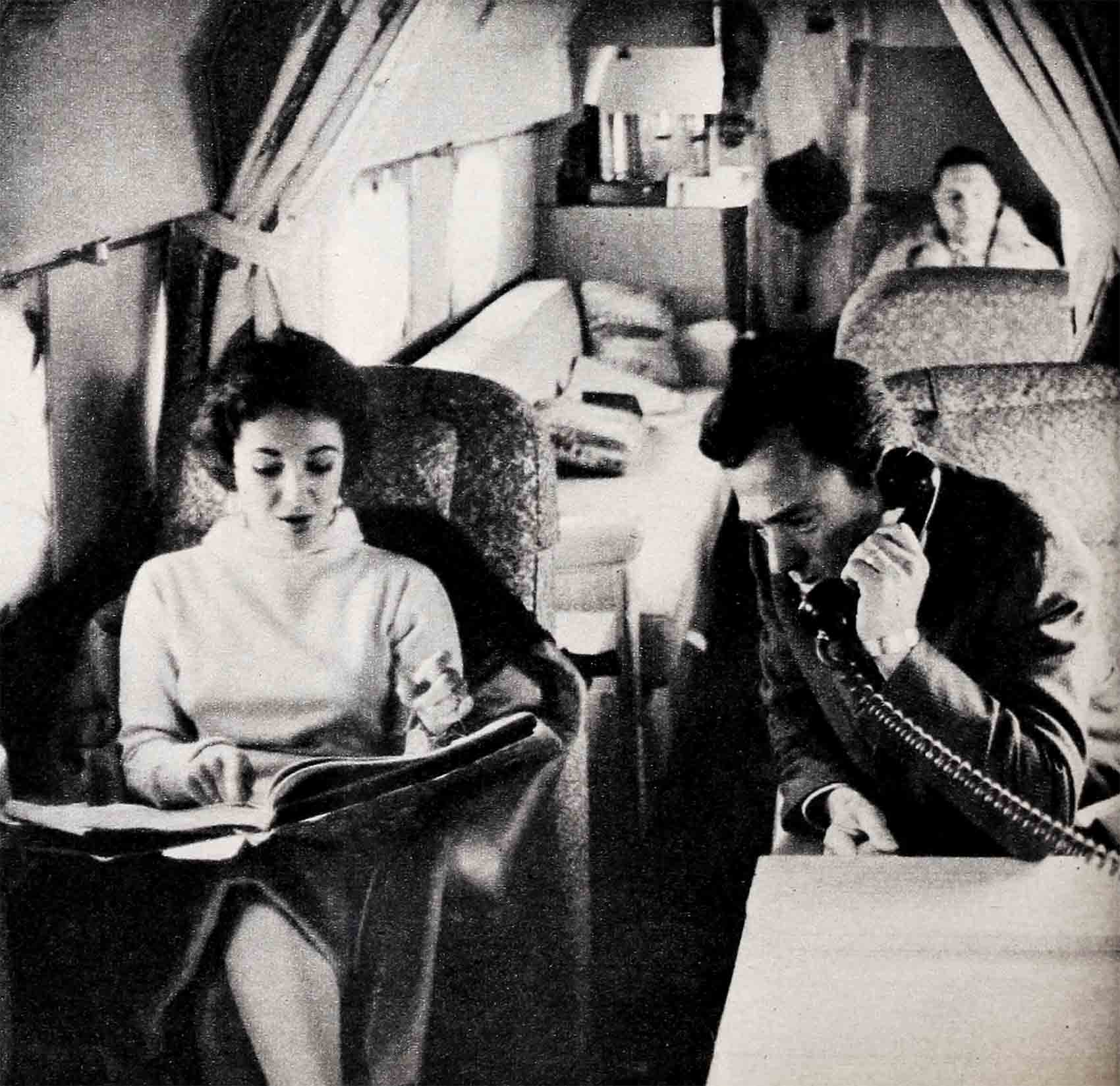
All night, she had stared at the ceiling, strangely frightened. It was foolish to work herself into such a state, she thought, just because this was only the third time in their married life that they’d been separated. But she’d never felt like this before. Maybe it was simply the fever— the doctor said it was 102—this disgusting virus that had kept her from going with Mike. Nothing more.
But in the morning, he didn’t call. He always called her, even if he was only a few blocks away, to let her know where he was, what he was doing . . . just to talk. She called Dick Hanley, his private secretary.
“No, Liz, I haven’t heard,” he said. “Yes, they got off all right last night. At 9:41. Yes, I’ll let you know as soon as I have any word. Now, try and get some rest.”
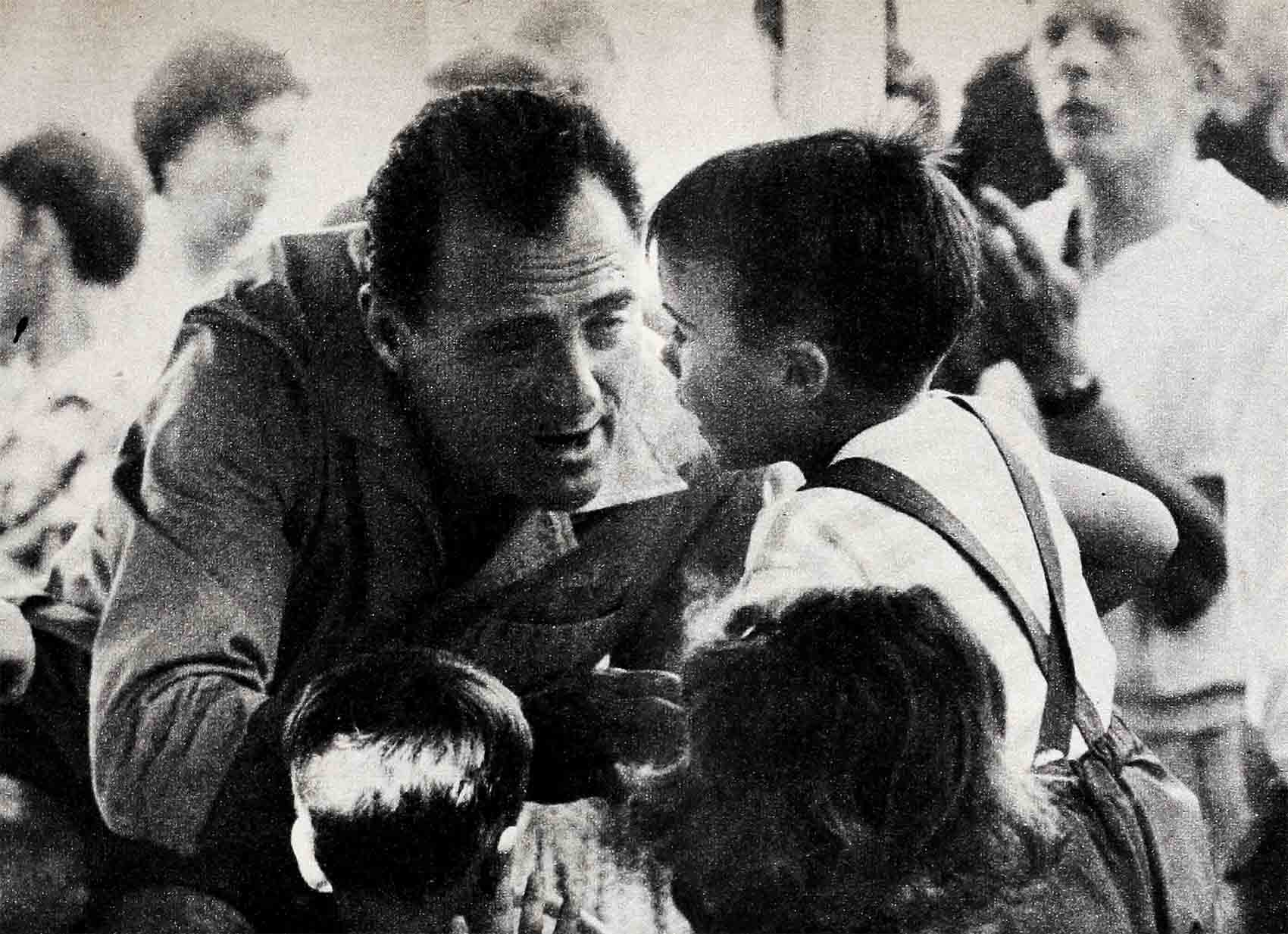
But she couldn’t rest. She and the three children—little Mike and Chris. baby Liza—were up and dressed when the doorbell rang at 9:30, and Dick walked in with their family physician, Dr. Kennamer.
“She knew,” Dick said afterward. “The moment she saw us, before we said anything. She knew.”
One scream, so loud and piercing that the neighbors heard it, tore from her throat. In blind hysteria, she rushed from room to room, seeking escape from something too terrible for a human mind and heart to accept. Babbling incoherently, she tried to run out the front door. Hanley grabbed her arm, and he and Dr. Kennamer carried her upstairs, as gently as possible. Once, before the doctor’s sedatives quieted her, she became calm for a moment, to ask pathetically, “What about the children?”
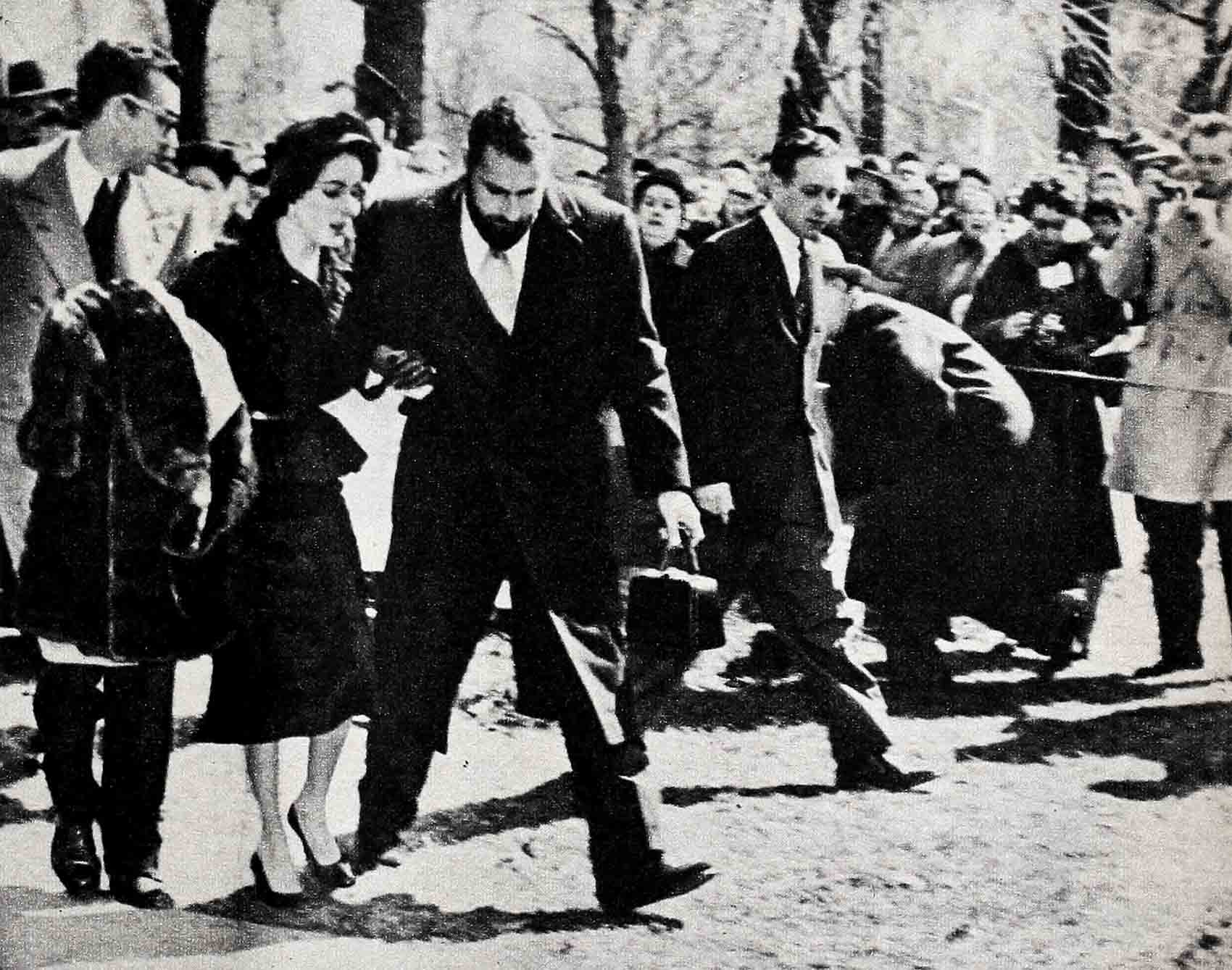
After that, everything had been so hazy. Sometimes, she sank eagerly into a deep sleep, hoping, in the confusion of her grief, to be carried away to join Mike, who would never awake again. Sometimes, she sat and stared at the phone, dreading to hear it ring, yet hoping that it would . . . and she would pick it up . . . and it would be Mike, telling her this was all an ugly dream.
Friends came. Debbie Reynolds. Dear Debbie. She asked the same question Liz had asked: “What about the children?” And took them all into her own home. Michael Wilding, one of the first to offer sympathy and help. Benny Thau, head of production at M-G-M. Her agent, Kurt Frings, and his wife. Hair stylist Sidney Guilaroff. Helen Rose.
“I can’t believe it. I can’t believe it,” she said, over and over. The doctor, knowing it would be good for her, told them to let her talk. “I didn’t want him to go. I wanted him to wait until Saturday. The Friars’ dinner for him wasn’t until Sunday. He was like a little boy when he asked me if he could stay over to see the Robinson-Basilio fight on the way home, and I told him, ‘Yes, if you’ll leave tomorrow.’ He said he couldn’t—he had a lot of business to attend to. But I don’t think he wanted to go. He came up six times to say goodby tome . . .”
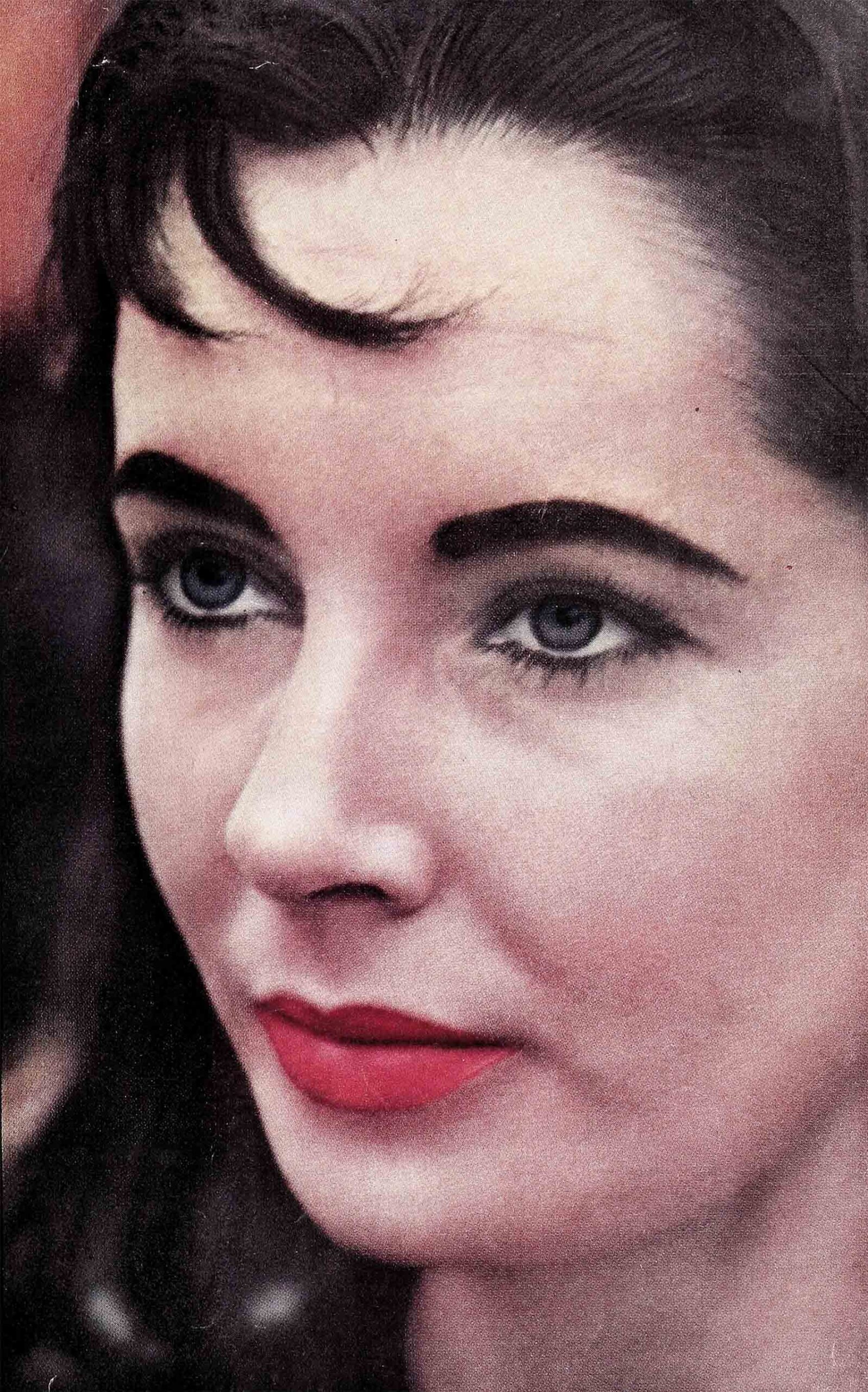
“Whither thou goest, I will go . . .” it was a vow they made to each other on the loveliest night of her life. under a starlit Mexican sky. Their wedding night. There had been dancing, and champagne, and music and flowers, all the lavish prefection that only a Michael Todd could
muster. She had to sit in a chair, suffering almost constant pain from a back injury that would not heal. But she was happy. Oh, so happy . . .
“Time to get dressed,” said Helen gently. Like a sleepwalker, she got up and put on her things, with Helen helping. Then, leaning on Helen’s arm, she walked down the steps, and out to the cars where Eddie Fisher, her brother Howard, Dr. Kennamer and Dick Hanley, and Sidney Guilaroff waited. Out of the house where they had been so happy . . .
They had made so many plans. While Liz was working on “Cat on a Hot Tin Roof,” Mike had moved his whole office to the coast, just to be with her. After that, they were going to make his picture, “Don Quixote” together. And after that, they were going to move back to the home in Westport, for good. The children would go to school there, and Liz would be a Connecticut housewife. “Maybe just one more picture for my husband,” she had said, “but that’s all. Then I’m going to retire. I’ve been an actress for fifteen years. Now I want to be a woman. Mike is a wonderful husband and a wonderful father, and he’s more important to me than any career in the world.”
Now, the plans, the dreams were all gone. Because Mike was gone. As they sped through the night to the airport, she thought dully, “Why? Why?”
At the airport, quick, loving hands reached out to help her. The sight of the plane, it was feared, might give her a bad relapse, so she had been given heavy sedation. She staggered past the plane, not seeing it, and had to be led back.
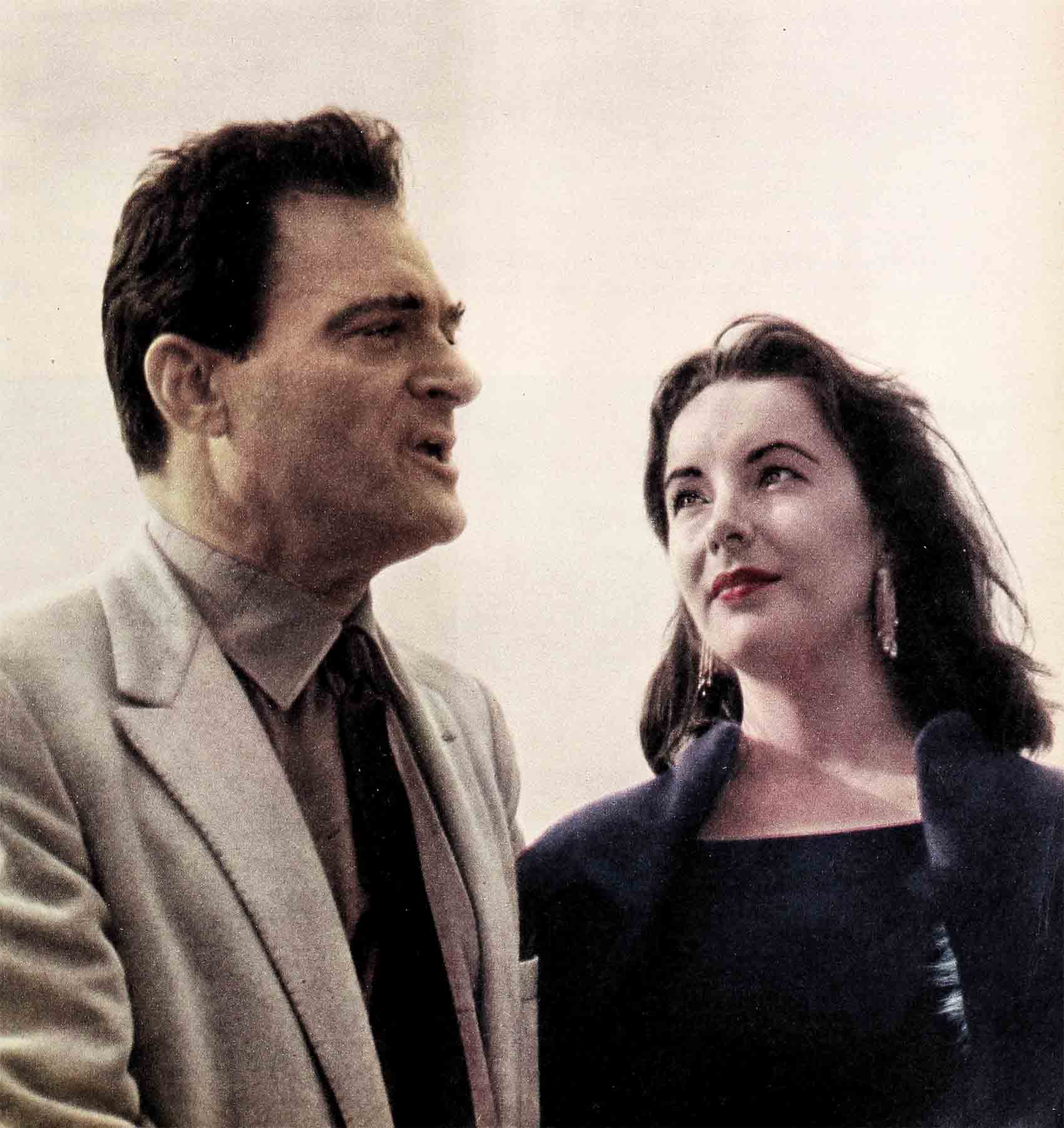
Dutifully, she went to bed in a berth, but five minutes later, she got up and crept to a seat beside her brother Howard. “Can’t stay there,” she murmured. “Mike and I always took a berth.” Through the long night, all the memories of their short year together tumbled through her brain in a giddy fever. Their meeting at the Mocambo, when her friend, Kevin McClory, introduced them, and she was dazzled by the flamboyance, strength and magnetism of this man, Mike Todd. The day her separation from Michael Wilding was announced, when he called and said, “Don’t date anyone else, because I’m going to marry you.” His long-distance courtship, with the calls that began lasting a few minutes—and ended lasting for hours. Their meeting in New York, when he swept her off her feet with attention and fabulous gifts—and, most important, a kind of strong, protective devotion she had never known. The day he said, “This is for you,” and reached across a lunch table to put a twenty-nine carat engagement ring on her finger. The unbelievable, glorious summer that followed, with Mike whisking her from London, to Paris, to the Riviera, and showering her with jewels, furs, gowns, homes, parties. The terrible hours of little Liza’s premature birth, when his courage and love helped to pull her through. The unbroken , idyll that continued in Tokyo, and then even in Moscow. (“Can you kiss in public here?” she had asked, timidly, mindful of previous storms their uninhibited kisses had caused. But the people didn’t know them. “At least they recognize class,” Mike exulted, when two little girls asked Liz for autographs. And afterward, he’d kidded her about his failure to sell “Around the World in Eighty Days” to the Russians: “You ruined me, honey. Why, they didn’t even see the picture. They were all too busy looking at you.”)
Aloud, she cried, “No, no! It can’t be. I can’t believe it!” Then, moaning piteously, “Why couldn’t I have been with him? I wanted to be with him. Oh, why couldn’t it have been me instead of him?” And again, “No, no! I don’t believe it!”
Even when Mike, Jr., the grief-stricken son of Mike’s first marriage, met her at the airport, it didn’t seem quite real. Nor the ride to the stark, chilly Waldheim Cemetery, in Forest Park, outside Chicago. Nor the curious, staring, silent crowds. Nor the sorrowing faces of Mike’s brothers, Carl. David and Frank and his sister, Sheila. Even the angry outburst of Carl, a Long Beach taxi driver, long estranged from Mike, against Dick Hanley seemed like a strange, unreal scene.
Then she saw it—the casket containing all that remained of a man, who, in his fifty years, had packed more of living and the joy of life than few mortals ever do. But to her, he was not Mike Todd, super-showman, maker and loser of millions, but the man who, for the first time in her life, had made her feel whole and secure.
“When we’re apart, we die,” she had said. “Without him, I feel like half a pair of scissors. That’s what he always used to say to me when he went away.”
With a piercing shriek, and a last, pitiful, “No, no!” reality came. Once more, as Rabbi Abraham Rose intoned the simple, moving Jewish ritual, she moaned, “No, no!” And at the end, she tried to throw herself upon the casket, held by her brother’s restraining arm.
Then, gently, she put her hand upon it, and said, “I love you, Mike.” And, with a composure amazing to those who had seen her agony of the previous days, she turned and left.
“Mike, Mike, my sweetheart, I can’t leave you here,” she wailed, as the car left the cemetery.
And that night, a small, lonely figure boarded another plane. To go where? Back to work—Mike’s insurance, reported at three million, actually came to about $13,000 for her, when loans for his ventures and provisions for Mike, Jr., were deducted. Income from the picture and the song she’d have . . . but for how long? Back to Hollywood . . . to the career she had willingly—just a week before—promised to give up “to be a good wife to Mike.” Back to a home filled with Mike—his clothes, his favorite chair, the book he left unread. “Back to what?” she cried piteously.
No one on the plane answered.
THE END
It is a quote. PHOTOPLAY MAGAZINE JUNE 1958





No Comments